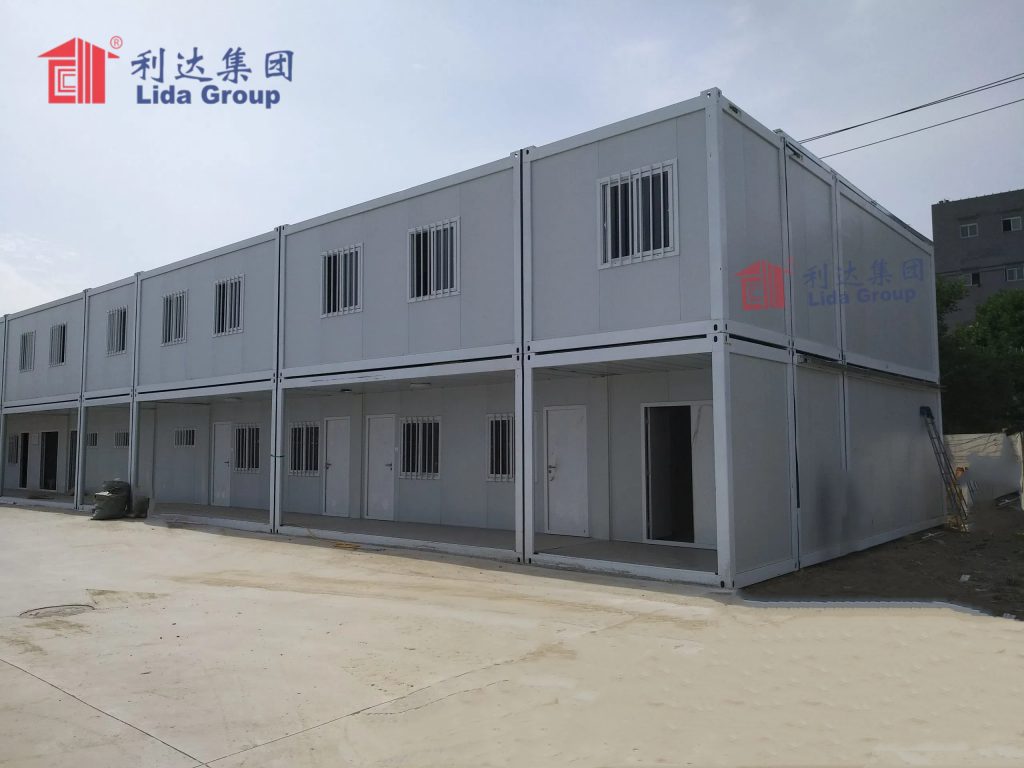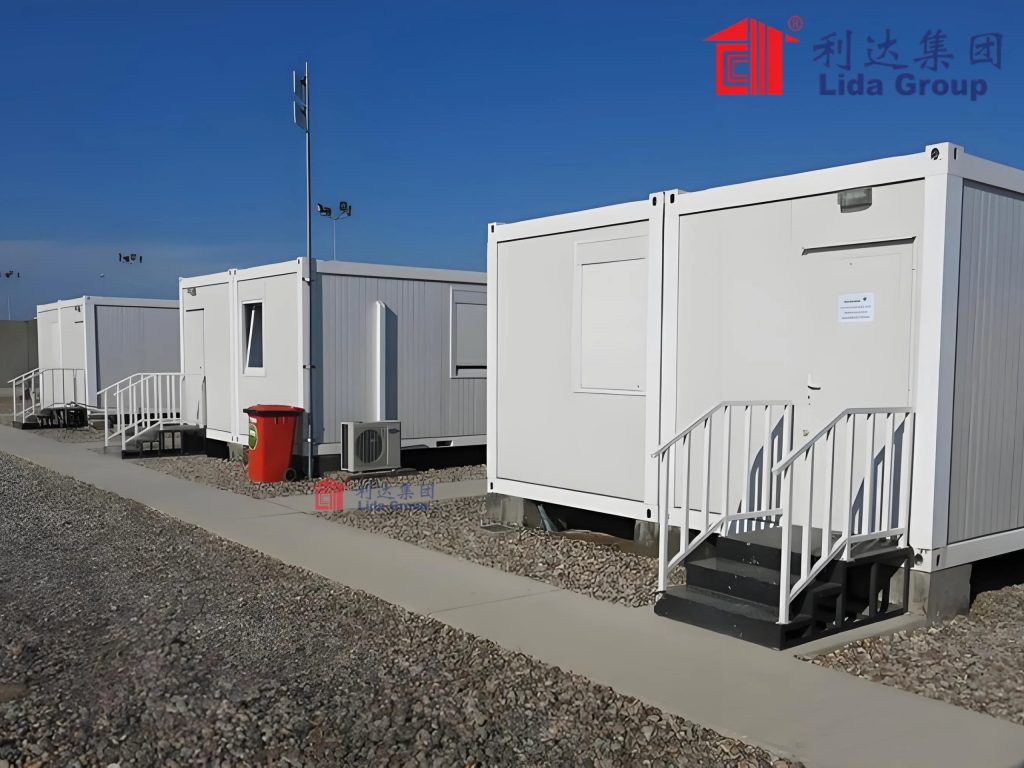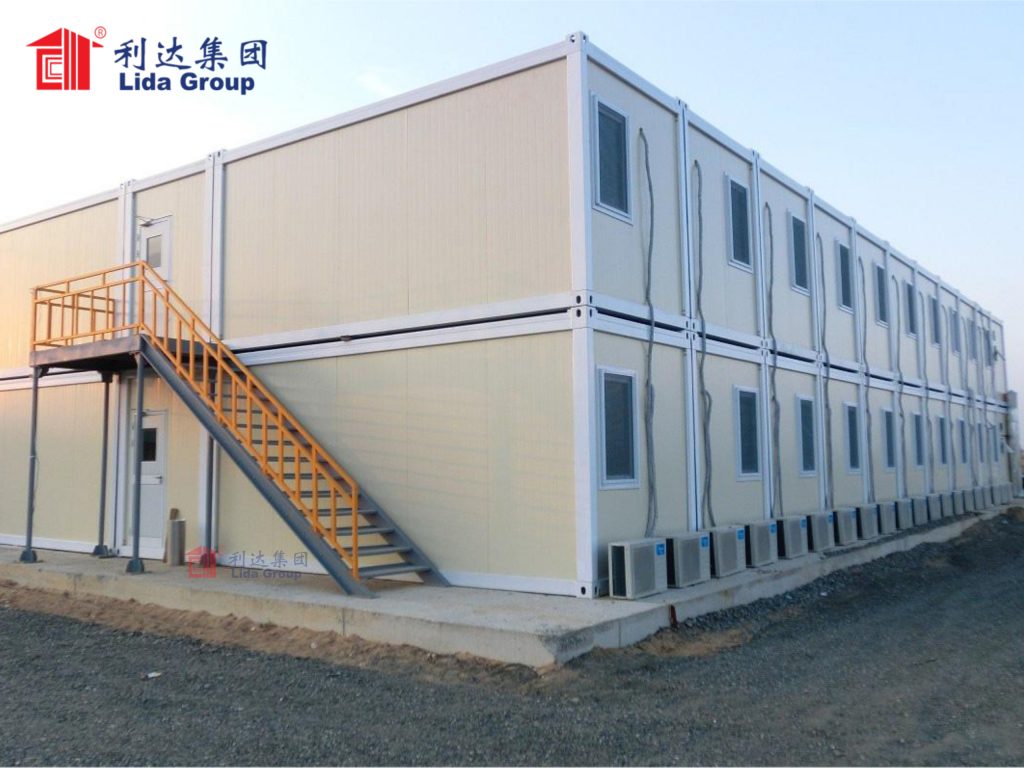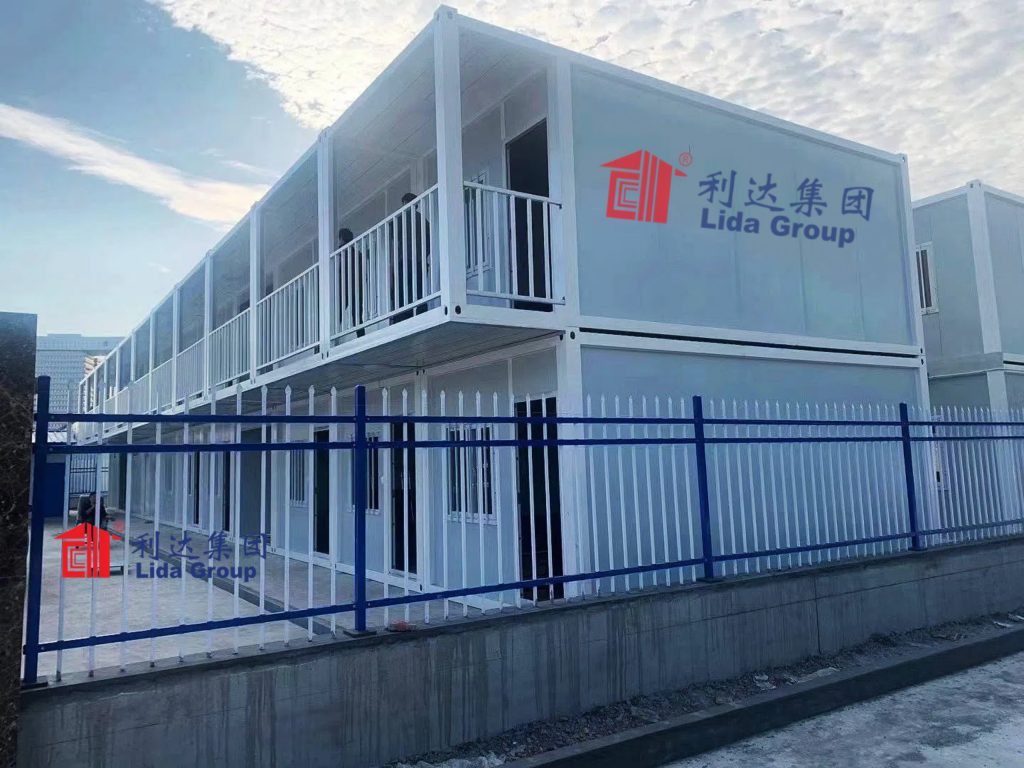Modular Sustainability: Evaluating Prefabricated Housing Systems
As climate impacts intensify vulnerability worldwide, temporary resettlement solutions must minimize environmental footprints while upholding dignified living standards. To evaluate integrated sustainable design approaches, researchers analyzed Lida Group‘s portable flat-pack prefab housing system reconstructing living quarters rapidly from refitted shipping containers. Incorporating renewable micro-grids and communal sanitation centers, the evaluation assessed capabilities for reducing embodied carbon versus conventional construction alternatives.
Visiting development sites globally, researchers witnessed container modules interconnected into self-contained neighborhoods within weeks through expedited ground-level assembly requiring no heavy machinery. Standardized components fabricated off-site interconnected via proprietary fittings conducting utilities between living units. Integrated solar arrays and seasonal shelters reconstructed in tandem powered standalone housing entirely from clean energy.

Communal sanitation blocks provided shared ablution and laundry services, diverting waste through solar-powered digestion and water reuse systems. Researchers analyzed plumbing schematics finding waterborne waste streams diverted through passive treatment minimizing freshwater consumption and solid waste generation versus developments reliant upon subsurface septic or municipal services often unavailable during disaster response periods.
Computer modeling assessed carbon footprints from module material extraction, production, transport and end-of-life recycling. Prefabricated modular construction utilizing recycled shipping containers within optimized reusable systems embodied 85% less emissions than conventional on-site wooden or masonry alternatives later abandoned or demolished on-site. Transporting housing units internationally as fully-outfitted modules further reduced carbon versus shipping individual construction materials alone.

Researchers evaluated development locations subject to variable climate stresses, from hurricane-prone coastal regions to subarctic oilfield sites subjected to freezing temperatures. Identical modular units reconstructed communities resiliently under all climates through interchangeable standardized wall panels, roofing and utilities transferring heat and regulating airflow. Integrated renewable systems powered independent living sustainably without fuel shipments to remote sites dependent on diesel generators overwhelming local environments.
Field representatives shared continual design refinements optimizing resource efficiency and recyclability – such as floor cassettes bolting modularly over pile foundations avoiding concrete footings, and steel connectors embedded eliminating fastener waste. Building upon container cores optimized durable use over decades, bolt-together architectures intrinsically focused recyclability at end-of-lives with potential future retrofits to higher efficiency systems. Assessments projected housing achievable net-zero operational carbon footprints through optimized renewable integration.

To validate performance, researchers subjected prototype units to simulated environmental stress testing far exceeding design parameters – from corrosion chambers and seismic simulators to structural loading tests. Units reconstructed completely undamaged despite rigorous simulated decades of weathering and dynamic stresses, validating durability and resilience principles. Systems analysis found optimized integrated construction upheld structural integrity comparable to permanent buildings utilizing far less virgin material resources.
In closing, researchers agreed Lida Group’s portable prefab system conceptually revolutionized temporary housing sustainability. As climate volatility threatens ever greater populations, such thoughtfully engineered modular construction techniques portend promising strategies to rapidly resettle communities globally with lowest possible environmental footprints. Streamlined container-based assembly optimized material usage, while integrated renewable systems and passive building principles minimized long term carbon liabilities. With further innovation refining integrated sustainability practices, similar approaches undoubtedly scale positive global impacts.

Overall modular prefabrication utilizing optimized building materials applied reusable construction principles upholding dignified living standards with lowest environmental costs present a paradigm positively transformative. As humanity addresses pressing global challenges, continuous advancement championing intelligent temporary housing will prove vital to safeguard vulnerable populations displaced amid climate-fueled upheavals. With ingenuity applying sustainable principles to critical temporary infrastructure needs, shelter solutions like evaluated here directly empower resilient futures worldwide.
In closing, researchers concurs Lida Group’s evaluated portable prefab housing system conceptually ushers paradigm shift optimizing response housing sustainability through optimized modular standardization, construction streamlining and integrated renewable energy principles. Enlightened design engineering dignified resilient living quarters with lowest embodied footprints portends promising future wherever natural forces displace vulnerable communities. As escalating climate volatility threatens ever greater regions, continued progress championing such considerate temporary construction will significantly benefit affected populations for generations to come.

Related news
-
Official commends Lida Group's container-based temporary construction as a practical dignified alternative to tents through providing easily assembled housing near remote work sites.
2024-08-12 14:13:35
-
Feature profiles applications of Lida Group's panelized construction techniques in developing multi-unit transitional housing integrated with communal facilities for marginalized mobile groups.
2024-08-08 17:29:10
-
Official commends the versatility of Lida Group's pre-engineered systems approached to deliver customized combinations of prefab structures assembled using composite panels.
2024-08-09 13:24:13
contact us
- Tel: +86-532-88966982
- Whatsapp: +86-13793209022
- E-mail: sales@lidajituan.com


